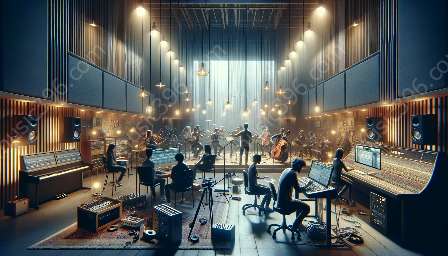When it comes to the world of music, the art of lyric writing holds a special place. It is through compelling and relatable lyrics that musicians and songwriters can connect with their audiences on a deeper emotional level. From storytelling to conveying raw emotions, the craft of lyric writing requires a unique set of skills and techniques.
Understanding Lyric Writing Techniques
Effective lyric writing involves a deep understanding of language, narrative, and emotions. Here are some essential techniques to consider:
- Storytelling: Crafting lyrics that tell a compelling story can captivate listeners and keep them engaged throughout the song. Effective storytelling techniques include establishing a strong narrative arc, developing well-rounded characters, and creating vivid imagery through descriptive language.
- Emotional Authenticity: Emotions are the driving force behind memorable lyrics. Songwriters must tap into their own emotions and experiences to infuse authenticity into their lyrics, allowing listeners to connect with the sentiment behind the words.
- Melodic Phrasing: A strong synergy between the rhythm of the melody and the cadence of the lyrics is crucial. Understanding how to structure lyrics to fit seamlessly within the melody can elevate the overall impact of a song.
- Metaphor and Symbolism: The use of metaphors and symbolism can add depth and layers to lyrics, allowing for multiple interpretations and enriching the listening experience.
- Rhyme Schemes and Meter: Crafting lyrically pleasing rhyme schemes and meter can enhance the musicality of a song, contributing to its memorability and catchiness.
Integration with Songwriting
Lyric writing and songwriting go hand in hand. While lyric writing focuses on the words and their emotive impact, songwriting encompasses the entire process of creating a song, including musical composition, arrangement, and performance. It is essential for lyricists to understand how their words integrate with the musical elements of a song.
During the songwriting process, lyricists can collaborate closely with musicians and composers to ensure that the lyrics and the music complement each other harmoniously. This collaborative effort often involves:
- Understanding Musical Dynamics: Lyricists need to be mindful of the musical dynamics and structure of the song. This includes being aware of verse-chorus transitions, instrumentation, and overall mood.
- Creating Vocal Melodies: Crafting vocal melodies that complement the lyrics and the overarching musical arrangement is a collaborative endeavor between lyricists and composers. The flow of the lyrics should align with the melodic phrasing and accentuation.
- Embracing Co-Creation: Collaborative songwriting often leads to the seamless integration of lyrics and music. By embracing co-creation, lyricists can contribute to the overall sonic identity of the song.
Harmonizing with Music Composition
Music composition is a vital component of the broader songwriting process. It involves the structuring of melodies, harmonies, rhythms, and instrumentation to create a cohesive musical piece. When integrating lyric writing with music composition, the following aspects should be considered:
- Aligning Mood and Theme: The thematic content of the lyrics should align with the musical mood and theme. A cohesive blend ensures that the message of the song is conveyed both through the words and the music.
- Exploring Collaborative Composition: Music composers and lyricists can work collaboratively to ensure that the melodic and harmonic aspects of the composition complement the lyrical content. This synergy results in a well-integrated musical piece.
- Structural Integration: The structural arrangement of the music should accommodate the flow and rhythm of the lyrics. Composers must consider the phrasal and thematic structure of the lyrics when crafting the music.
By understanding and implementing these techniques, lyricists can enrich their craft and seamlessly integrate their lyrical prowess with the art of songwriting and music composition. This integration ultimately leads to the creation of memorable and impactful musical experiences for both the creators and their audiences.




























